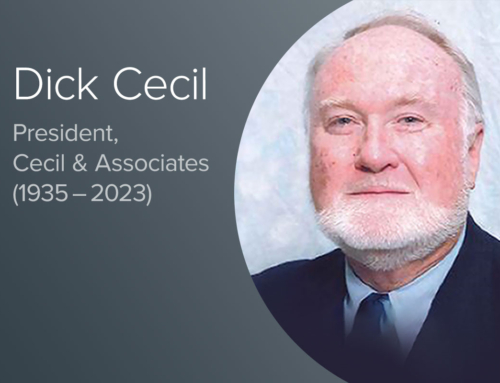I suppose I have just grown weary of the questions. Are you a marketing firm or a PR firm? Do you help manage media relations or support sales? Are you focused on brand reputation or brand value? The answer to these questions, from our perspective, is “yes” and, sometimes, “hell yes.”
There is still a lot of misdirected energy among communications professionals to hold on to traditional nomenclature for what it is that we do, whether an advertising, marketing, PR or branding agency.
The Holmes Report and the USC Annenberg School for Communications and Journalism recently released their Global Communications Report 2017. It’s impressive and fascinating. I also think it comes up a bit short (and the report itself seems to agree).
When asked whether PR should redefine or rename itself, a whopping 87% of PR executives believe that Public Relations won’t accurately describe the work they will be doing in five years.
One high level take-away of the detailed study was that nearly half of PR professionals and 60% of marketing executives believe that their two disciplines will become more closely aligned in the next five years.
I don’t think the most important questions are about us, the professionals who deliver the service. I think it’s about the clients who hire us to help them manage relationships with those who matter most to their success as a business or organization.
Increasingly (but certainly not definitively), clients are becoming agnostic as to whether we call ourselves PR pros, advertisers or marketers as technology advances and practical experiences further blur whatever vertical industry delineations remain.
I lean heavily on the opinions of a respected colleague, Ken Makovsky. He recently blogged about the same report I referenced above. He shared,
“I believe that the survey results confuse the accelerating speed and dynamics of communication with the heart of what we do — and what we have always tried to do as professionals — which is to manage relations with publics. And I believe that managing relations with publics has never been more relevant or important or challenging than it is now, or will be in the near future.”
We should always start with the business objective of our client and keep that in the crosshairs of everything we do for them, even if that means sourcing talent, ideas or technology from outside our shops.
We, like Makovsky’s highly regarded agency, are an integrated shop. We didn’t start this way. Our clients took us in this direction. They trusted our advice and counsel and commitment to high quality service and asked if we could do more.
Technology advances have also made it easier to access talent and expertise across the globe rather than down the hall. That’s one of the reasons why we’re a member of IPREX, a $350 million global platform of agencies like ours with 115 offices around the world.
It’s not about us and what we call ourselves. It is about the convergence of skills and services that our clients are demanding. It’s mostly about the clients we serve and their relationships with the publics that matter most to their success.
By keeping this always in focus, maybe we’ll have fewer and fewer questions in the future about what we actually do for a living.








